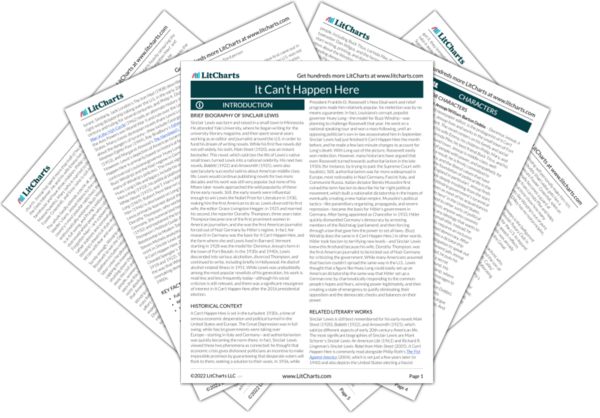Lewis exercises his freedom of speech to the fullest by showing Jessup question the two wars that most Americans view as noble, necessary, and core to their national identity. While readers may see him as cynical, in reality, his thoughts show a profound optimism about human nature. He believes that people can solve their problems democratically through cooperation, tolerance, and foresight. In a way, he is imagining a utopia of his own: a world where war is no longer necessary to settle human conflicts. But it’s not clear whether this approach will be enough to defeat Windrip’s dictatorship. In fact, while Jessup will always remain committed to liberal democracy, the tactics he uses to fight for it will change radically over the course of the book.
